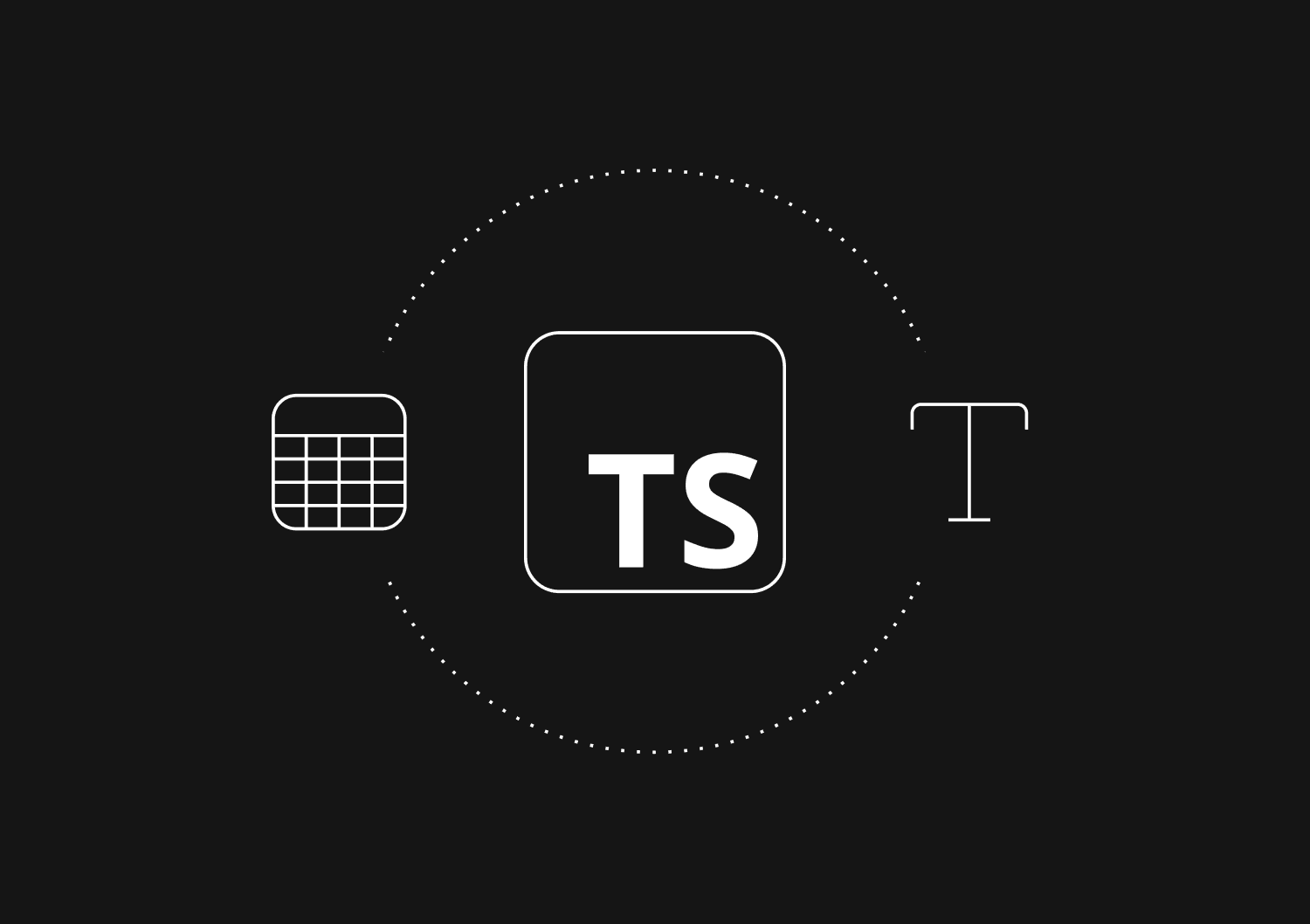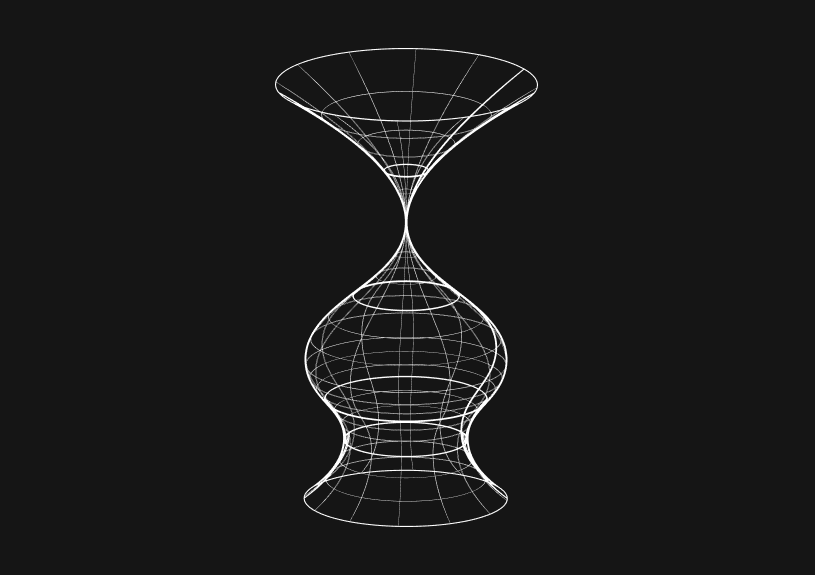
Using Typescript to recursively convert dates to strings
March 17, 2022
If you work with TypeScript you may be familiar with “utility types”, which take a given type and transform it somehow into a different type. It’s a function which takes a type as an input and modifies it and returns a new type. TypeScript has many built-in utility types, which are detailed here: TypeScript’s introductory article on utility types
The built-in utility types are great, but you can also make your own. Here’s one we’ve made which is extra special:
type RecursivelyConvertDatesToStrings<T> = T extends Date ? string : T extends Array<infer U> ? RecursivelyConvertDatesToStrings<U>[] : T extends object ? { [K in keyof T]: RecursivelyConvertDatesToStrings<T[K]> } : T;
This is a utility type which takes anything you throw at it, objects, arrays, primitives, you name it, and converts Date values to string. It’ll then be strings-for-dates all the way down
Fun fact
One of our engineers, Robert Cooper, implemented this utility type, with the help of GitHub’s AI code-writing-assistant, Copilot.
You could ship faster.
Imagine the time you'd save if you never had to build another internal tool, write a SQL report, or manage another admin panel again. Basedash is built by internal tool builders, for internal tool builders. Our mission is to change the way developers work, so you can focus on building your product.

Our use case: server-side vs. client-side typing
We use RecursivelyConvertDatesToStrings to transform the typings of our endpoint responses (typically ORM models arranged and prepped in one form or another) from how they look server-side, into how they arrive client-side, upon a fetch operation. Because our endpoints return data via JSON in the standard way, there’s no way for any Date fields to arrive in-tact. They’re necessarily flattened into strings for the HTTP response.
So, we type our “fetched endpoint responses”, by taking our server-side “endpoint responses” and running them through this utility type. That way TypeScript knows that all our favorite date fields, such as createdAt or updatedAt are now of string type, and our client-side state and rendering code set up for success.
You may not have this use case though
Some applications might benefit from a client-side layer which automatically intercepts fetched payloads and reconstitutes proper JavaScript Date objects from strings that match a date. We considered this, but decided that for our needs, it’s sufficient to do any Date reconstitution manually, as needed, for a given operation client-side.
References
TOC
March 17, 2022
If you work with TypeScript you may be familiar with “utility types”, which take a given type and transform it somehow into a different type. It’s a function which takes a type as an input and modifies it and returns a new type. TypeScript has many built-in utility types, which are detailed here: TypeScript’s introductory article on utility types
The built-in utility types are great, but you can also make your own. Here’s one we’ve made which is extra special:
type RecursivelyConvertDatesToStrings<T> = T extends Date ? string : T extends Array<infer U> ? RecursivelyConvertDatesToStrings<U>[] : T extends object ? { [K in keyof T]: RecursivelyConvertDatesToStrings<T[K]> } : T;
This is a utility type which takes anything you throw at it, objects, arrays, primitives, you name it, and converts Date values to string. It’ll then be strings-for-dates all the way down
Fun fact
One of our engineers, Robert Cooper, implemented this utility type, with the help of GitHub’s AI code-writing-assistant, Copilot.
You could ship faster.
Imagine the time you'd save if you never had to build another internal tool, write a SQL report, or manage another admin panel again. Basedash is built by internal tool builders, for internal tool builders. Our mission is to change the way developers work, so you can focus on building your product.

Our use case: server-side vs. client-side typing
We use RecursivelyConvertDatesToStrings to transform the typings of our endpoint responses (typically ORM models arranged and prepped in one form or another) from how they look server-side, into how they arrive client-side, upon a fetch operation. Because our endpoints return data via JSON in the standard way, there’s no way for any Date fields to arrive in-tact. They’re necessarily flattened into strings for the HTTP response.
So, we type our “fetched endpoint responses”, by taking our server-side “endpoint responses” and running them through this utility type. That way TypeScript knows that all our favorite date fields, such as createdAt or updatedAt are now of string type, and our client-side state and rendering code set up for success.
You may not have this use case though
Some applications might benefit from a client-side layer which automatically intercepts fetched payloads and reconstitutes proper JavaScript Date objects from strings that match a date. We considered this, but decided that for our needs, it’s sufficient to do any Date reconstitution manually, as needed, for a given operation client-side.
References
March 17, 2022
If you work with TypeScript you may be familiar with “utility types”, which take a given type and transform it somehow into a different type. It’s a function which takes a type as an input and modifies it and returns a new type. TypeScript has many built-in utility types, which are detailed here: TypeScript’s introductory article on utility types
The built-in utility types are great, but you can also make your own. Here’s one we’ve made which is extra special:
type RecursivelyConvertDatesToStrings<T> = T extends Date ? string : T extends Array<infer U> ? RecursivelyConvertDatesToStrings<U>[] : T extends object ? { [K in keyof T]: RecursivelyConvertDatesToStrings<T[K]> } : T;
This is a utility type which takes anything you throw at it, objects, arrays, primitives, you name it, and converts Date values to string. It’ll then be strings-for-dates all the way down
Fun fact
One of our engineers, Robert Cooper, implemented this utility type, with the help of GitHub’s AI code-writing-assistant, Copilot.
You could ship faster.
Imagine the time you'd save if you never had to build another internal tool, write a SQL report, or manage another admin panel again. Basedash is built by internal tool builders, for internal tool builders. Our mission is to change the way developers work, so you can focus on building your product.

Our use case: server-side vs. client-side typing
We use RecursivelyConvertDatesToStrings to transform the typings of our endpoint responses (typically ORM models arranged and prepped in one form or another) from how they look server-side, into how they arrive client-side, upon a fetch operation. Because our endpoints return data via JSON in the standard way, there’s no way for any Date fields to arrive in-tact. They’re necessarily flattened into strings for the HTTP response.
So, we type our “fetched endpoint responses”, by taking our server-side “endpoint responses” and running them through this utility type. That way TypeScript knows that all our favorite date fields, such as createdAt or updatedAt are now of string type, and our client-side state and rendering code set up for success.
You may not have this use case though
Some applications might benefit from a client-side layer which automatically intercepts fetched payloads and reconstitutes proper JavaScript Date objects from strings that match a date. We considered this, but decided that for our needs, it’s sufficient to do any Date reconstitution manually, as needed, for a given operation client-side.
References
What is Basedash?
What is Basedash?
What is Basedash?
Ship faster, worry less with Basedash
Ship faster, worry less with Basedash
You're busy enough with product work to be weighed down building, maintaining, scoping and developing internal apps and admin panels. Forget all of that, and give your team the admin panel that you don't have to build. Launch in less time than it takes to run a standup.
You're busy enough with product work to be weighed down building, maintaining, scoping and developing internal apps and admin panels. Forget all of that, and give your team the admin panel that you don't have to build. Launch in less time than it takes to run a standup.
You're busy enough with product work to be weighed down building, maintaining, scoping and developing internal apps and admin panels. Forget all of that, and give your team the admin panel that you don't have to build. Launch in less time than it takes to run a standup.




Dashboards and charts
Edit data, create records, oversee how your product is running without the need to build or manage custom software.
USER CRM
ADMIN PANEL
SQL COMPOSER WITH AI

Related posts
Related posts
Related posts



How to turn webpages into editable canvases with a JavaScript bookmarklet
Kris Lachance



How to fix the "not all code paths return a value" issue in TypeScript
Kris Lachance



Working with WebSockets in Node.js using TypeScript
Kris Lachance



Type Annotations Can Only Be Used in TypeScript Files
Kris Lachance



Guide to TypeScript Recursive Type
Kris Lachance



How to Configure Knex.js with TypeScript
Kris Lachance
